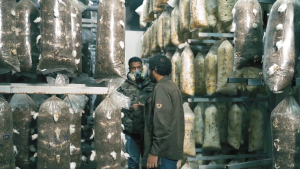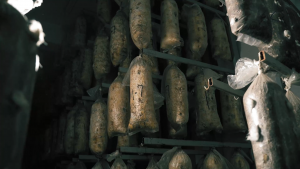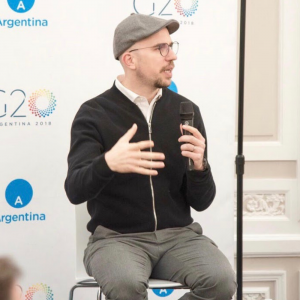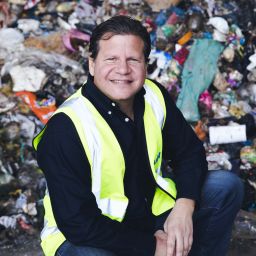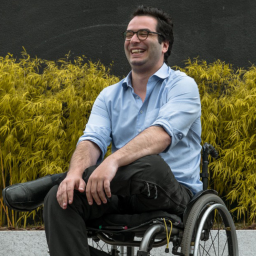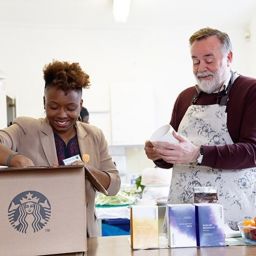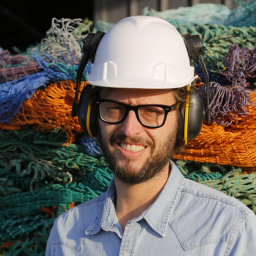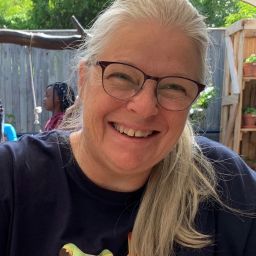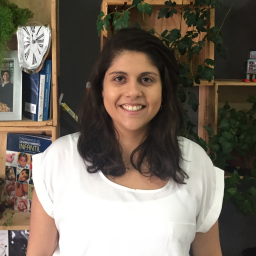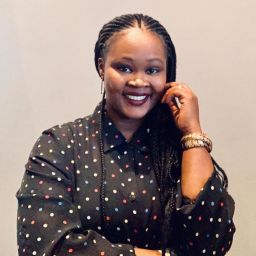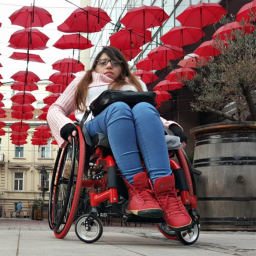Meaningful Business (MB:) Please tell us a bit about your background.
Abdulrhman Elhalafawy (AE) : I’m a passionate entrepreneur experienced in business development, operations, and project management with experience across different industries; agriculture, waste management, agri-tech, and e-commerce. I exploited my passion and activeness about sustainability and agriculture to co-found our coffee waste startup, Cupmena.
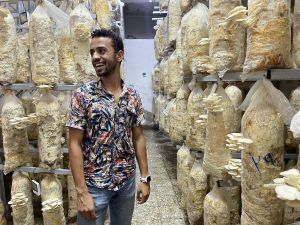
Abdulrhman Elhalafawy, Chief Business Officer, Cupmena
MB: Please introduce your business and the problems you’re trying to solve.
AE: Coffee is the most consumed beverage in the world. The world population drinks over 2.25 billion cups of coffee every day. And that produces over 16 million tons of coffee.
Typically, spent coffee grounds are dumped into general waste and sent to landfills where they decompose to produce methane, a greenhouse gas with more than 20 times the global warming capacity of carbon dioxide.
There are increasing pressures from climate change, soil erosion, biodiversity loss, and consumers’ changing tastes in food and concerns about its production. And the natural world that farming works with – plants, pests, and diseases – continues to pose its challenges.
So, we developed a new method to maximise the value from the coffee waste to grow a mushroom superfood. Our solution cultivates mushrooms using the spent coffee ground as the primary soil. We started building a value-chain for coffee waste by creating a collecting system that helps coffee chains get rid of their spent ground in a way which protects the environment.
Cupmena mushroom cultivation facility
MB: What is your biggest challenge right now and what support do you need?
AE: We have built a successful idea with considerable potential in the existing market. Initially, the cost was too high and the cash flow was always negative. When we started tracking the fundamental issues, we found that our unit economics wasn’t scalable.
The problem was the capacity per unit, and we have 75m units producing only 200-250kg of mushroom monthly. In the large-scale model, we have redesigned the production to raise the capacity for the 75m unit to be 500-550kg instead of 250kg which has helped us to have strong unit economics with a solid, scalable model.
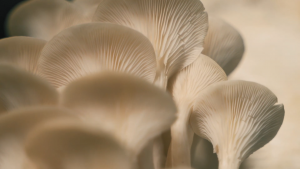
Mushrooms grown by Cupmena
MB: What is your ambition for the future of your business?
AE: From day one, I had the vision to see my startup exist in the whole MENA region. Cupmena will be the biggest waste management company in the region across many industries, to include agri-tech, food, medical, and furniture.
Cupmena mushroom growing facility
MB: What is your advice to other leaders who want to combine profit and purpose?
AE: It takes time and you must have a growth mindset to keep going and reach your goal.
________
Quickfire Questions
MB – Tell us a mistake you’ve learned from:
AE: Comfort zone! It’s a big trap; You should take of yourself out of it!
MB – How do you spend your time away from work?
AE: I am a triathlete, cyclist and marathoner, so I spent most of the time workout and training hard to keep on my stamina because I take part in Ironman races. Also, I travel a lot to get to know new people and cultures and try new coffee because I’m a big coffeeholic!
MB – What’s the best piece of advice you’ve ever received?
AE: “Just believe, and you’ll achieve!”
MB – What is the one book everyone should read?
AE: I’m not a book person at all to give book advice, but there’s a good podcast I’m currently listening to called ‘A Bit of Optimism’ , hosted by Simon Sinek.
MB – What is something you wish you were better at?
AE: Numbers.
MB – What’s one thing you want to achieve in 2022?
AE: I want to find the time to start my master’s degree, I have been postponing this for a long time.
________
Discover the other leaders recognised on the 2021 MB100, for their work combining profit and purpose to help achieve the United Nations Global Goals, here.


